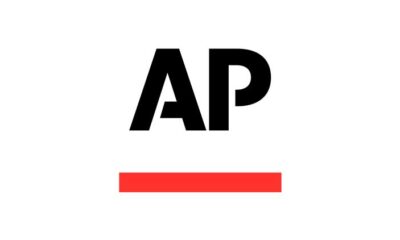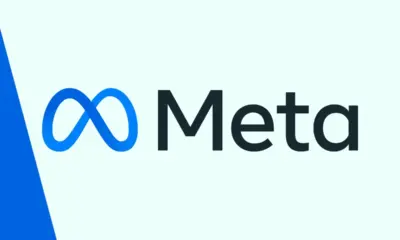Science
Whistleblowers Allege Meta Concealed VR Safety Risks to Children

Allegations have emerged that Meta, the company led by Mark Zuckerberg, suppressed internal research regarding safety risks associated with its virtual reality (VR) applications. Whistleblower claims, reported on March 18, 2024, suggest that the company stifled findings related to disturbing incidents in which children were allegedly targeted by inappropriate individuals while using Meta’s VR technology.
Two whistleblowers, including Jason Sattizahn, a former safety researcher at Meta, shared their experiences from an April 2023 research trip to Germany. During this visit, a mother recounted her decision to restrict her children from interacting with strangers through Meta’s VR headsets. Shortly after, her teenage son revealed that his younger brother had faced sexual propositions from adult users on multiple occasions. Sattizahn remarked, “I felt this deep sadness watching the mother’s response. Her face displayed her realization that what she thought she knew of Meta’s technology was completely wrong.”
Following their interviews, Sattizahn and his colleague were allegedly instructed to delete recordings and written evidence of the teenager’s claims. The final report from Meta downplayed the severity of the situation, suggesting that German parents were merely concerned about potential grooming in VR environments.
These allegations, brought forth by four current and former Meta employees, include thousands of pages of documents, memos, and presentations submitted to Congress. According to the leaked documents, Meta had been aware of children bypassing age restrictions for Oculus VR headsets as early as April 2017. One employee noted, “We have a child problem and it’s probably time to talk about it,” estimating that up to 90 percent of metaverse users might be underage.
Concerns about child safety were echoed in a November 2021 presentation, where Meta attorneys advised researchers to conduct sensitive research under attorney-client privilege to prevent public exposure. Employees were cautioned to avoid terms like “not compliant” and “illegal” in their internal studies. Additionally, one attorney reportedly instructed a researcher in 2023 not to compile data on underage users due to regulatory concerns.
Sacha Haworth, Executive Director of The Tech Oversight Project, stated, “To be crystal clear: Meta ordered its researchers to delete evidence that the company was breaking the law and willfully endangering minors.” She called for a thorough investigation into Mark Zuckerberg’s leadership and the culture within Meta that allegedly encourages law-breaking behavior among senior leaders.
The Senate Judiciary Committee is scheduled to hold a hearing to examine these claims. The committee’s chairman, Senator Chuck Grassley, along with Senators Marsha Blackburn and Josh Hawley, recently sent a letter to Zuckerberg demanding a follow-up on their inquiries by September 16, 2024.
In a joint statement submitted to Congress in May, the whistleblowers accused Meta’s legal team of systematically screening and sometimes blocking the release of internal safety research. This allegedly stemmed from the fallout of the 2021 leak by former employee Frances Haugen, which revealed that the company was aware of the harmful effects of its apps on teenage users.
Meta responded to the allegations, with spokesperson Dani Lever asserting that the claims are based on “stitched together” narratives. She highlighted that since the beginning of 2022, Meta has approved nearly 180 Reality Labs-related studies focused on social issues, including youth safety. Lever emphasized that these research efforts have led to significant product updates, such as new supervision tools for parents.
Lever added that Meta has implemented automatic protections for teenagers, including default settings to limit unwanted contact in Horizon Worlds. She stated, “From the start, we built safety features into our devices and made it clear those devices were meant for people over 13.”
Despite Lever’s assurances, Sattizahn countered that the mother had provided consent for the data collection during the research interview, suggesting that Meta’s deletion of information may have been unnecessary. Sattizahn was terminated by Meta in April 2024 after voicing concerns about the company’s handling of safety research, while his colleague resigned in 2023 over ethical issues. Two other whistleblowers remain employed at Meta and are supported by the nonprofit organization Whistleblower Aid, which previously assisted Haugen.
As Meta pivots its focus towards artificial intelligence, the implications of these allegations raise critical questions about the company’s commitment to user safety and the protective measures in place for its youngest users.
-

 Technology5 months ago
Technology5 months agoDiscover the Top 10 Calorie Counting Apps of 2025
-

 Health2 months ago
Health2 months agoBella Hadid Shares Health Update After Treatment for Lyme Disease
-

 Health3 months ago
Health3 months agoErin Bates Shares Recovery Update Following Sepsis Complications
-

 Technology4 months ago
Technology4 months agoDiscover How to Reverse Image Search Using ChatGPT Effortlessly
-

 Technology1 month ago
Technology1 month agoDiscover 2025’s Top GPUs for Exceptional 4K Gaming Performance
-

 Technology2 months ago
Technology2 months agoElectric Moto Influencer Surronster Arrested in Tijuana
-

 Technology5 months ago
Technology5 months agoMeta Initiates $60B AI Data Center Expansion, Starting in Ohio
-

 Technology5 months ago
Technology5 months agoRecovering a Suspended TikTok Account: A Step-by-Step Guide
-

 Health4 months ago
Health4 months agoTested: Rab Firewall Mountain Jacket Survives Harsh Conditions
-

 Lifestyle5 months ago
Lifestyle5 months agoBelton Family Reunites After Daughter Survives Hill Country Floods
-

 Technology4 months ago
Technology4 months agoHarmonic Launches AI Chatbot App to Transform Mathematical Reasoning
-

 Technology3 months ago
Technology3 months agoUncovering the Top Five Most Challenging Motorcycles to Ride





















